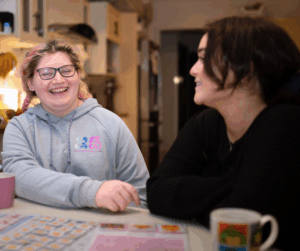A well-developed PBS plan:
-
Promotes safety and predictability through consistent support strategies
-
Encourages skill-building and independence
-
Reduces reliance on restrictive practices
-
Improves quality of life across home, school, work, and community settings
By focusing on proactive and preventative strategies, Positive Behaviour Support Plans help individuals feel understood, reduce emotional escalation, and create pathways to more positive interactions and relationships.
If restrictive practices are currently in use, an interim Positive Behaviour Support Plan is required within 30 days of assessment to ensure immediate safeguards and support.


